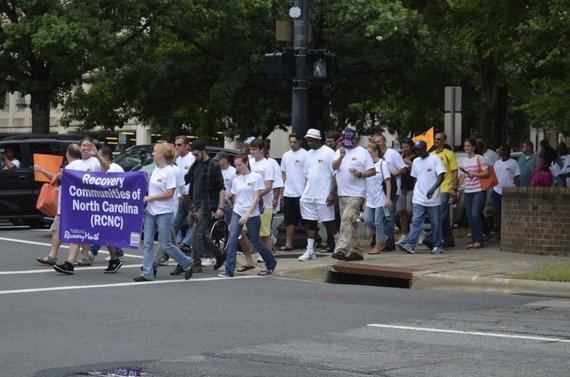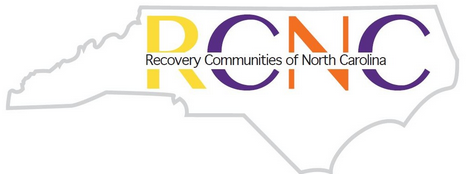The following is part three of a three-part series on the recovery movement in North Carolina. You can read part one here and part two here.
Recovery is exciting, empowering, and essential. The movement that's happening nationwide attracts more support every day. 2016 truly could be a turning point for the recovery movement as momentum builds from 2015 and our country turns its attention towards the next presidential election. As important as the national recovery movement is, the most substantial work that can be done still falls to the local level.
North Carolina is one example of a state working collaboratively to address the addiction epidemic by putting a significant emphasis on recovery. In parts one and two of this series, I touched upon the implementation of collegiate recovery programs and the development of advocacy initiatives, respectively. In this concluding section, I'll aim to briefly focus on the strategy and sustainability efforts that enabled North Carolina to achieve such resounding success.

Community members in North Carolina rally together this past September for their annual Recovery Month walk.
Jimmy Cioe is the Program Coordinator of Recovery Initiatives for the Governor's Institute on Substance Abuse. In his capacity at the Governor's Institute, he works to bring visibility to recovery while shifting the state toward a recovery oriented system. The Governor's Institute has produced some "Recovery Vignettes" of individuals sharing their stories, which are posted on YouTube here.
Jimmy is also a person in long-term recovery, celebrating 23 years today, January 7th. According to Jimmy's bio, "he became licensed in alcohol/drug treatment and, for the last nineteen years, has worked and managed virtually every aspect of the treatment continuum, including a city detox, outreach, case management services, outpatient treatment, in-patient, long-term residential treatment and intervention". Jimmy has traveled throughout the state of North Carolina providing recovery-messaging training along with the organization Recovery Communities of North Carolina (RCNC). As discussed in part two of this series, organizations like RCNC provide vital state-wide advocacy efforts to spread a message of recovery, develop key partnerships, and increase the overall access to recovery support services.
Betty Currier, a Board Member of RCNC, has delivered many of these messaging trainings through RCNC and just celebrated 40 years of sobriety this past Wednesday, January 6th. Community members like Jimmy and Betty are integral parts to the recovery movement. We need faces and voices of recovery. We need individuals who can articulately and passionately talk about recovery. We need to hear the success stories. Most of all, the general public needs to know that we're here. The general public is our greatest enemy and our greatest ally. The perception of an 'addict' or 'alcoholic' is still a negative, stigmatized image for the majority of Americans, but that can change. By following the leads of individuals like Jimmy and Betty, or organizations like RCNC and the Governor's Institute, we begin to make long-lasting change in how our country views and treats addiction.
Chris Budnick, Chairperson of RCNC, has tracked data since 2012 that includes presentation details and statewide exposure. As recently as 2012 and 2013, RCNC had a total of thirteen presentations (which would include anything from rallies, trainings, or documentary screenings). In 2014 and 2015, RCNC had approximately 100 total presentations. The growth has been substantial, and the organization estimates that they have reached over 2,200 people this past year alone. Along with tracking data over the years, RCNC archives presentations such as their recovery messaging trainings on the Recovery NC YouTube channel.
There is no particular formula for developing a powerful recovery movement like we've seen in North Carolina. Outstanding supporters such as Betty, Jimmy, and Chris are crucial, but so are the average community members who just show up to town halls or movie screenings. Community organizations that can mobilize and engage individuals throughout the state are a huge asset, but so are small local chapters of larger organizations. Never underestimate how much of an impact you can have. Your story is meaningful, and your voice is powerful.
As the recovery movement enters a pivotal time and President Obama enters his last year in office, I urge everyone to follow the words of one of his most memorable quotes:
One voice can change a room, and if one voice can change a room, then it can change a city, and if it can change a city, it can change a state, and if it change a state, it can change a nation, and if it can change a nation, it can change the world. Your voice can change the world

